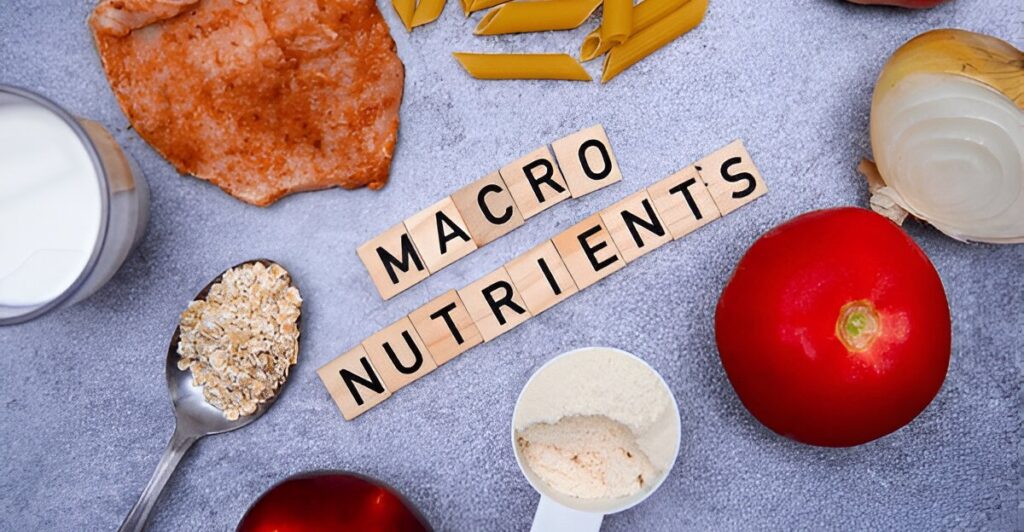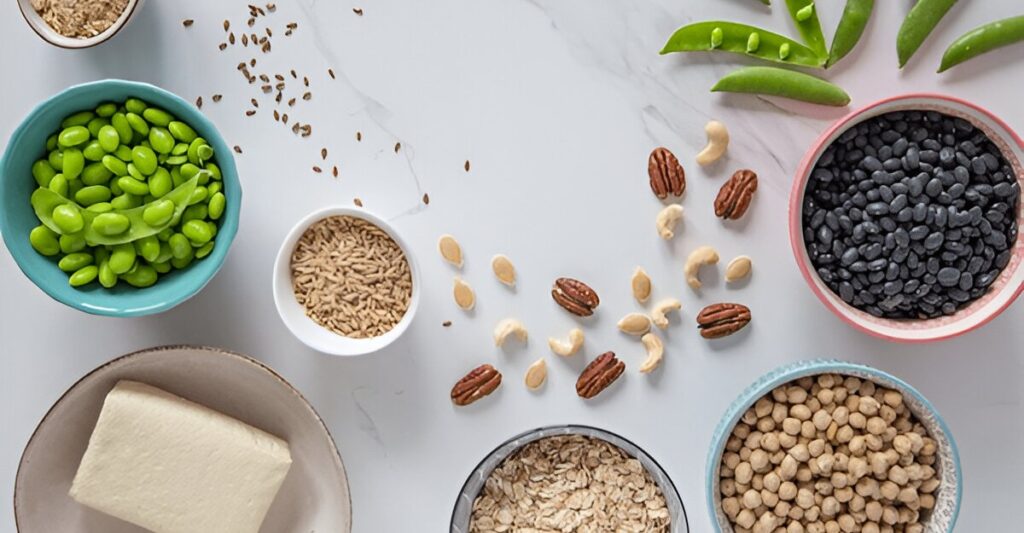Quality sleep is essential for physical health, mental clarity, and overall well-being, yet many struggle to get the rest they need. While factors like stress or screen time play a role, your diet significantly impacts sleep quality. Certain foods and eating habits can either promote restful sleep or keep you tossing and turning. In this article, we’ll share science-backed nutrition tips for better sleep, including the best foods, meal timing strategies, and habits to help you wake up refreshed.
How Nutrition Affects Sleep
Your diet influences sleep through several mechanisms:
- Hormone Regulation: Foods affect melatonin (sleep hormone) and cortisol (stress hormone) levels.
- Blood Sugar Stability: Balanced meals prevent nighttime blood sugar swings that disrupt sleep.
- Nutrient Support: Key nutrients like magnesium and tryptophan support relaxation and sleep cycles.
- Gut Health: A healthy gut influences the gut-brain axis, which regulates sleep.
Poor dietary choices, like heavy meals or excessive caffeine, can interfere with these processes, leading to restlessness or insomnia. Incorporating nutrition tips for better sleep can help you fall asleep faster and stay asleep longer.
Top Nutrition Tips for Better Sleep
Here are practical, evidence-based strategies to optimize your diet for restful sleep:
1. Eat Foods Rich in Sleep-Supporting Nutrients
Certain nutrients promote relaxation and melatonin production. Include:
- Magnesium: Found in almonds, spinach, or pumpkin seeds, magnesium calms the nervous system.
- Tryptophan: Found in turkey, eggs, or oats, tryptophan is a precursor to serotonin and melatonin.
- Vitamin B6: Found in bananas, chickpeas, or salmon, B6 supports melatonin synthesis.
- Melatonin-Rich Foods: Cherries, grapes, or walnuts naturally boost melatonin levels.
Example: A bedtime snack of tart cherry juice and a handful of almonds combines melatonin and magnesium for sleep support.
2. Choose Complex Carbohydrates
Complex carbs stabilize blood sugar and increase serotonin production, promoting calmness. Opt for:
- Whole grains: Oats, quinoa, or whole-grain bread.
- Starchy vegetables: Sweet potatoes or butternut squash.
- Fruits: Bananas or berries for natural sweetness.
A small bowl of oatmeal with banana slices before bed provides carbs and tryptophan for better sleep.
3. Include Lean Proteins
Protein-rich foods contain amino acids that support sleep regulation. Choose:
- Animal-based: Turkey, chicken, or fish.
- Plant-based: Tofu, lentils, or hummus.
Pair protein with carbs, like turkey on whole-grain bread, to enhance tryptophan absorption.
4. Incorporate Healthy Fats
Healthy fats, particularly omega-3s, reduce inflammation and support brain health, which aids sleep. Include:
- Fatty fish: Salmon, mackerel, or sardines.
- Nuts and seeds: Walnuts, flaxseeds, or chia seeds.
- Oils: Olive oil or avocado oil.
A dinner of grilled salmon with a side of roasted vegetables provides omega-3s and magnesium for restful sleep.
5. Time Your Meals Wisely
Meal timing affects digestion and sleep quality:
- Avoid Late, Heavy Meals: Eating large meals within 2–3 hours of bedtime can cause indigestion or acid reflux, disrupting sleep. Aim for dinner 3–4 hours before bed.
- Choose Light Evening Snacks: If hungry, opt for a small, sleep-friendly snack (e.g., yogurt with berries) 30–60 minutes before bed.
- Eat Regularly: Consistent meal times stabilize blood sugar and circadian rhythms, supporting sleep.
6. Stay Hydrated, but Time It Right
Dehydration can disrupt sleep, but drinking too much water before bed may lead to nighttime bathroom trips. Aim for:
- 8–10 cups of water daily, spread throughout the day.
- Reduced fluid intake 1–2 hours before bed.
- Hydrating foods like cucumber or watermelon earlier in the day.
7. Limit Sleep-Disrupting Foods and Drinks
Certain foods and beverages can interfere with sleep. Reduce or avoid:
- Caffeine: Found in coffee, tea, or chocolate; limit after 2 p.m., as it can stay in your system for 6–8 hours.
- Alcohol: May help you fall asleep but disrupts deep sleep cycles.
- Sugary Foods: Cause blood sugar spikes, leading to nighttime awakenings.
- Spicy or Fatty Foods: Can cause indigestion or heartburn, especially if eaten late.
8. Support Gut Health
A healthy gut influences the gut-brain axis, which regulates sleep. Incorporate:
- Probiotics: Yogurt, kefir, or sauerkraut to support beneficial bacteria.
- Prebiotics: Garlic, onions, or bananas to feed good bacteria.
- Fiber-Rich Foods: Vegetables, fruits, and whole grains for gut motility.
A serving of kefir with fruit before bed supports both gut health and sleep.
Sample Meal Plan for Better Sleep
Here’s a day of eating to apply nutrition tips for better sleep:
- Breakfast: Greek yogurt with oats, walnuts, and sliced banana.
- Snack: A handful of pumpkin seeds and a pear.
- Lunch: Grilled turkey breast, quinoa, and roasted broccoli with olive oil.
- Snack: Tart cherry juice and a boiled egg.
- Dinner: Baked salmon, sweet potato, and a spinach salad with avocado dressing.
- Bedtime Snack (if needed): Small bowl of oatmeal with almond butter and cherries.
This plan includes magnesium, tryptophan, and complex carbs to promote restful sleep.
Lifestyle Tips to Complement Nutrition
Nutrition tips for better sleep are most effective when paired with these habits:
- Establish a Sleep Routine: Go to bed and wake up at consistent times to regulate your circadian rhythm.
- Limit Screen Time: Avoid blue light from phones or computers 1–2 hours before bed, as it suppresses melatonin.
- Manage Stress: Practice deep breathing, meditation, or gentle yoga to reduce cortisol.
- Exercise Regularly: Aim for 150 minutes of moderate activity weekly, but avoid intense workouts close to bedtime.
- Create a Sleep-Friendly Environment: Keep your bedroom dark, quiet, and cool (60–67°F).
Who Can Benefit from These Nutrition Tips?
These nutrition tips for better sleep are ideal for:
- Individuals with insomnia or poor sleep quality.
- Those experiencing stress-related sleep disturbances.
- People with irregular schedules, like shift workers.
- Anyone seeking to optimize energy and health through better rest.
If you have chronic sleep issues or conditions like sleep apnea, consult a healthcare provider for tailored advice.
Common Challenges and Solutions
Adopting sleep-friendly eating habits can have hurdles. Here’s how to overcome them:
- Late-Night Cravings: Keep sleep-friendly snacks like yogurt or nuts on hand to avoid sugary treats.
- Busy Schedules: Prep meals in advance, like overnight oats or salads, for quick access.
- Caffeine Dependence: Gradually reduce caffeine and switch to herbal teas like chamomile, which promotes relaxation.
- Digestive Sensitivity: Start with small portions of new foods (e.g., fermented foods) to avoid discomfort.
Potential Risks to Avoid
- Overeating Before Bed: Large snacks or meals can disrupt sleep; stick to light, balanced options.
- Relying on Supplements: Melatonin or magnesium supplements may help but should be used under medical guidance.
- Ignoring Sleep Disorders: Persistent sleep problems may require professional evaluation, not just dietary changes.
Conclusion: Nourish Your Body for Restful Sleep
Nutrition tips for better sleep offer a natural, effective way to enhance rest and overall health. By eating foods rich in magnesium, tryptophan, and complex carbs, timing meals wisely, and supporting gut health, you can fall asleep faster and wake up refreshed. Pair these dietary strategies with a consistent sleep routine and stress management for optimal results. Small changes, like swapping late-night coffee for chamomile tea or adding cherries to your diet, can transform your sleep quality.
Ready to sleep better? Start by incorporating one sleep-friendly food, like almonds or bananas, into your evening routine this week. Your body and mind will thank you for the restful nights ahead.


